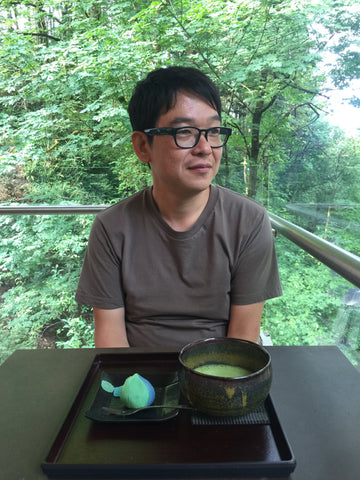Calling the attention of all the Filipino and Non-Filipino matcha lovers out there, you might’ve found the perfect blog post for you. One thing’s for sure: you’re in for a treat!
We’ve all seen recipes for matcha ice cream, cheesecake, truffles, cookies, cupcakes, and all that jazz, but we are taking a step further by adding matcha to all the most popular and well-loved Filipino dishes, which you can definitely make in the comfort of your own home without breaking the bank.
Without further ado, here are the recipes:
The Bouncy Matcha Puto Recipe
Puto is a staple dish in the Philippines, and at every feast or birthday party you go to, it is best believed that puto of all shapes and sizes will make an appearance on every buffet table. It is often paired with pancit, which serves as its side dish. And it is best paired with a hot cup of coffee. And, yes, coffee! The Philippines is a tropical country, but the locals prefer to drink a hot cup of coffee as their merienda (snack).
When making your bouncy matcha puto, you’ll need the following ingredients:
- 2 cups all-purpose flour, sifted
- 2 tbsp. baking powder, sifted
- 2 eggs, beaten
- 1.5 tsp. vanilla flavor
- ½ cup white sugar
- ½ cup brown sugar
- Pinch of salt
- 7 tbsps. butter, melted
- 1 can of evaporated milk or 1 cup of full-cream milk
- 1 cup of water
- 2 tbsps. matcha powder
- Sliced cheese or cream cheese
- Green and Yellow food coloring
Procedure:
For the Puto Batter:
- In a small bowl, melt 1 stick of butter in the microwave. If using a pan to melt butter, use the lowest heat possible. Do not burn the butter. You need 7 tablespoons of melted butter. (Alternatively, you can use coconut oil or lard.)
- In a mixing bowl, add melted butter, beaten eggs, and ½ cup white and brown sugar. Whisk it until well combined.
- Add 1 cup of evaporated milk or full-cream milk. Whisk it and gradually add in the sifted flour and baking powder.
- Gradually add water while whisking. If you have an electric hand mixer, beat it quickly until the batter becomes bubbly. But DO NOT overmix it; you only need enough bubbles in the batter to make your puto fluffy when cooked.
- Once it becomes bubbly, fold in your vanilla flavoring and matcha powder with a clean spatula.
- Your batter should have a pancake-like consistency, and you should see some small bubbles, which means that your puto will be fluffy when it’s cooked.
Steaming Puto:
- Transfer the batter to a small pitcher and fill each silicon mold until it’s ¾ full; you do not want your puto to overflow. Then carefully place each slice of cheese or cream cheese in the center; you can either put a slice in the center, which serves as a filling, or just put it on top as a dressing, or you can do both.
- Prepare your steamer and wait until the water reaches its boiling point before you start placing your puto in the steamer rack on top.
- Use a clean cloth to seal the top of the steamer.
- Steam it for up to 10 minutes over low heat. Once cooked, transfer it to a wire rack to cool for 5 minutes until it's ready for unmolding.
- Serve and Enjoy!

Sweet and Spicy Matcha Pancit Canton
Another fan-favored dish from the Philippines is influenced by the Chinese merchants who traded goods in the Philippines in the 7th century AD. To this day, it is a staple food for celebrations, especially birthday parties, because its long noodles signify long life. So, if you want to make sure that you will leave long, make sure to not break or cut your noodles!
Ingredients:
For the matcha noodles:
- 300 g of all-purpose flour; you might need more for dusting.
- 4 room-temperature large eggs
- 30 g of matcha powder, sieved (or more, depending if you like your matcha to taste stronger)
- Salt
For pancit:
- 300 grams of skinned medium-sized shrimp
- 250 grams of chopped pork belly
- 2 tablespoons of soy sauce
- 2 tablespoons of rice wine
- 1 teaspoon minced garlic
- 1 small carrot
- 1 bell pepper
- 50 grams of snap peas
- 1/4 head of white cabbage
- 1 shallot
- 2 tablespoons of cooking oil
- Salt
- Pepper
For the sauce:
- 1 and 1/2 cups bone broth
- 2 tablespoons of oyster sauce
- 2 tablespoons of hoisin sauce
- 1 tablespoon tapioca starch or corn starch (never flour!)
- 1/2 teaspoon sesame seed oil
- 1 tbsp. chili powder
- 3 tbsp. honey
- 1 tbsp. lemon
Procedure:
For the matcha noodles:
- Combine and sift the flour and matcha into a bowl.
- Mix until incorporated.
- On a large, flat, clean surface, place the flour and match mixture in a mound.
- Crack all four large eggs into the center of the mound of flour and matcha, creating a well to hold the eggs.
- Using a light hand, break the yolks of the egg and gently bring the flour into the center of the well using your fingertips.
- Keep incorporating the flour into the eggs until all the flour has been absorbed.
- Once the dough starts to form, bring it together with your palms and knead into a smooth yellow dough. This will take roughly 5 minutes. Note: If your dough is on the dry side, you can add a little splash of water to bring it together.
- When the dough forms a ball, cover tightly with cling wrap and refrigerate for a minimum of 30 minutes to allow the dough to rest and the gluten to develop. No longer than 18 hours.
- After resting, remove the dough from the fridge and cut it into four equal pieces. Set it aside and cover it with a towel to stop it from drying out.
- Flour your work surface and rolling pin, and roll 1 ball of dough at a time into a large, thin sheet. I don't give dimensions for this part as they vary, but my one note would be to get it as thin as humanly possible. Like paper-thin.
- Once the dough has been rolled out, fold it over itself several times.
- Cut the roll of pasta into strips roughly 1/4 inch thick, depending on what pasta you are making.
- Then dust some flour over the sliced strips of dough and unravel them to reveal your fresh pasta! Repeat this process with the remaining dough.
- Set the cut pasta aside on a tray and leave it out at room temperature to cook off, or cover and place it in the fridge to be cooked later.

To Cook Fresh Matcha Noodles:
- Place a medium pot over medium-high heat and boil 8 cups of water. Once the water is boiling, salt it and place the fresh pasta in the water.
- Add the pasta and allow it to cook for roughly 2 minutes, or until tender. When the pasta floats to the top of the pot, it is ready.
- Strain the water off the pasta and let it cool.
For pancit:
- Cut the pork belly into half-inch slices. Cut each slice into strips less than half an inch wide.
- Place the pork belly in a bowl. Add the soy sauce, rice wine, and half of the garlic. Mix well.
- Cover the bowl and let the pork marinate in the fridge for at least 30 minutes.
- Peel the carrot and julienne.
- Core and deseed the bell pepper and julienne it as well.
- Pinch off the tips of the snap peas and pull off the stringy fiber along the sides.
- Thinly slice the cabbage.
- Peel the shallot and thinly slice.
- Heat the wok and pour in a tablespoon of oil.
- Stir-fry the pork in the hot oil until cooked through. The pork had been cut into small pieces, and because stir-frying requires extremely high heat, the pork should be done in less than five minutes. Scoop them out and transfer them to a bowl.
- Stir-fry your chopped pepperoni for 3 minutes. Scoop them out and transfer them to a bowl.
- Heat the remaining cooking oil in the wok. Stir-fry the carrot, bell pepper, snap peas, and cabbage with generous pinches of salt and pepper just until softened, about 15 seconds.
- Add the sliced shallot and remaining garlic to the vegetables in the wok and stir-fry for another 15 seconds.
- Scoop them out and spread them on a plate to cool them and stop the cooking immediately. In a bowl, mix together all the ingredients for the sauce and pour it into the wok.
- Cook, stirring often, until thickened and no longer cloudy in appearance. Don’t worry if it doesn’t look too thick. It shouldn’t be. Slightly thickened is the ideal texture—just thick enough to coat the noodles but not make them stick together as they cool.
- Taste the sauce. Add salt and pepper, if needed (you may need to if your broth is unseasoned or underseasoned).
- Add the noodles, cooked pork, and vegetables to the sauce and toss thoroughly. Combine for minutes.
Impress your family and friends when they come over with these matcha-infused recipes; whether they’re non-matcha or matcha lovers, they will for sure ask you for the recipe so they can remake them when they’re craving pancit or puto. Share this post with your loved ones so they do not have to keep asking for the recipe.
About the Author
Kei Nishida
Kei Nishida is a Japanese green tea enthusiast, a writer, and the founder and CEO of Japanese Green Tea Company. His passion for introducing America to the tea of his homeland was the catalyst for creating the only company that brings high-quality tea from Arahataen Green Tea Farms to the rest of the world.
Japanese Green Tea Company is the only North American-based company to source tea directly from Arahataen Green Tea Farm in the Shizuoka prefecture of Japan. The farm uses sugarcane in its soil to make the tea taste sweeter while reducing its astringency.
Green Tea and Matcha from the Japanese Green Tea Company won the Global Tea Championship in 2017, 2018, and 2019 and was the #1 Best-Selling Green Tea in Japan online through Rakuten Inc. in 2016 and 2017. Rakuten Inc. is the largest e-commerce site in Japan and ranks #14 in the world for online sales volume (as of February 2018).
If you would like to try Award-Winning Japanese Green Tea or Green Tea, please use coupon code ANGSARAP to get 10% off of your first order at Japanese Green Tea Co.
Get Free Bonus Books

Sign up for free to the Green Tea Club to get advice and exclusive articles about how to choose Japanese Tea, and tips, tricks, and recipes for enjoying Japanese tea.
About the author
Kei Nishida
Author, CEO Dream of Japan
Certification: PMP, BS in Computer Science
Education: Western Washington University
Kei Nishida is a Japanese green tea enthusiast, a writer, and the founder and CEO of Japanese Green Tea Co., a Dream of Japan Company. His passion for introducing America to the tea of his homeland was the catalyst for creating the only company that brings high-quality tea from Arahataen Green Tea Farms to the rest of the world. Learn more about Kei

























